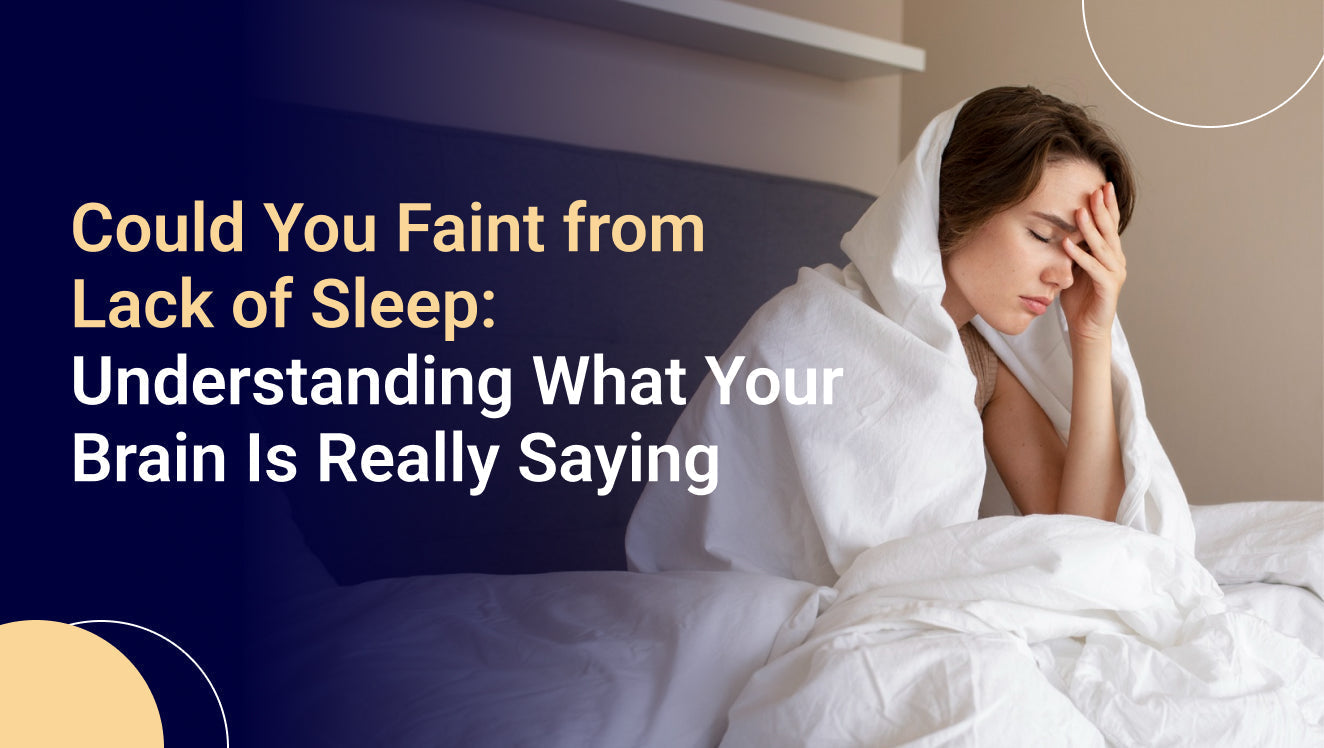You have been working so long days and so short nights, and you have been using coffee to carry on. One day you become dizzy and lightheaded, and unsteady. The question comes, would you really pass out because of being sleep-deprived?
Sleep deprivation is not just tiredness. It influences the way the brain copes with the fundamental body processes like blood pressure, balance, and alertness. In case these internal systems lose their coordination, your body will temporarily shut down in self-defense.
What goes on in the Brain and Body
Fainting or syncope is a condition that is experienced because the brain lacks sufficient blood, which contains oxygen, in a few seconds. Such balance is normally automatic and is controlled by the autonomic nervous system that controls the rate at which the heart beats, the relaxation and constriction of the blood vessels, along with the breathing rate.
This is a regulation that starts to fail in the case of long-term sleep deprivation:
-
The prefrontal cortex becomes slow, and deteriorates mental clarity and focus.
-
Amygdala and brainstem hyperactivity cause stress reactions.
-
The baroreflex mechanism, that stabilizes the blood pressure, can be less responsive.
The resultant effect is dizziness, blurred vision, instability and, in severe cases, a temporary loss of consciousness. It is an effort of your body to make a break when your brain's inner control mechanism is overstressing.
You must read - how much deep sleep should you get
How to Reground and Recover
-
Should you ever feel faint or anything like it, after sleepless nights:
-
Lie or sit up to resume the blood supply to the brain.
-
Take water and drink something to nourish blood sugar.
-
Restrict caffeine and stimulants that prevent fatigue but increase stress hormones.
-
Restore a regular seven to nine-hour sleep regime.
-
Nourish your nervous system with kind restoration activities like breathwork, body awareness or light and sound stimulation.
How neuroVIZR Helps
Once your brain is shaken by sleep deprivation, getting into a restorative state is hard even when you finally get to bed. neuroVIZR will fill that gap.
neuroVIZR helps the brain reach balanced neural states, which result in relaxation and recovery by stimulating light and sound as a specific pattern. The rhythmical frequencies are in favor of:
-
Autonomic nervous system regulation, which enables the body to get out of chronic fight or flight.
-
Better sleep quality through stimulating the alpha and theta brainwave patterns of sleep.
-
Reduced time needed to rest following mental fatigue and hence the brain is able to restore coherence once stressed or overworked.
This is not coercing the body into going to sleep, but rather making the brain recall the process of sleeping.
Key Takeaways
Sleep deficiency may lead indirectly to fainting through the disorganization of the brain and the body.
The deprivation of the nervous system to rest affects its inability to control blood pressure, balance, and oxygen flow.
Smooth recuperation, fluid intake, and regular sleeping normalize the situation.
The process is aided by neuroVIZR which assists the brain to get into restorative states using light and sound patterns that induce calmness and balance.
Transformation
The realization that fatigue is not a failure, but a form of communication, will change the relationship you have with your body. You no longer have to work until you are too tired. Instead, you start working with the innate desire of your brain to have a rest. This develops true resilience over time; that is, the nervous system becomes calm, alert and well-regulated and does not crash to re-set.
FAQs
1. What are the side effects of lack of sleep?
Lack of sleep can cause fatigue, poor focus, irritability, low immunity, dizziness, and slower reaction time. Over time, it increases the risk of stress, anxiety, and cardiovascular issues.
2. How to recover from a night of no sleep?
Take short naps during the day, stay hydrated, eat balanced meals, and go to bed earlier the next night. Give your brain at least one full night of deep rest to reset.
3. What to do if you only slept 2 hours?
Avoid relying on caffeine all day, get some sunlight, and move your body to stay alert. Try to schedule a short nap and maintain a consistent bedtime routine that night.
4. What happens if you miss a night of sleep?
Missing one night of sleep affects attention, mood, and coordination. The brain becomes less efficient at regulating emotions and energy. Recovery usually takes one or two full nights of rest.
5. How does neuroVIZR help in recovery from sleep loss?
neuroVIZR uses patterned light and sound stimulation to help the brain return to calm, balanced states, supporting better sleep and nervous system regulation.
Disclaimer:
This article is for educational purposes only and is not a substitute for medical advice. If you experience fainting, dizziness, or ongoing sleep issues, please consult a qualified healthcare professional.
Content References:
-
National Institutes of Health (NIH) – Sleep Deprivation and Brain Function
-
American Heart Association – Syncope and Blood Pressure Regulation
-
Sleep Foundation – Effects of Sleep Deprivation on the Nervous System



























Share:
3 Phases of Burnout - What Happens in Your Brain When